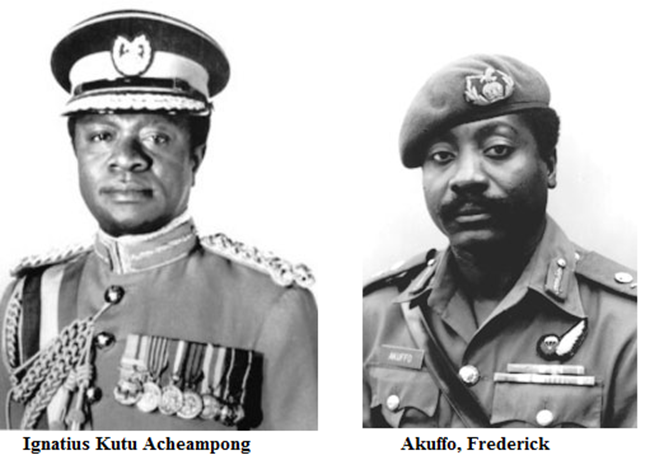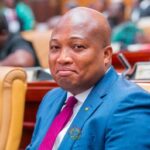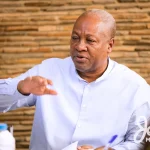By Justice Abban | Published first in Daily Graphic | 28 June 2003
RECENTLY, an eminent Ghanaian lawyer, Mr Adumoah Bossman, appeared before the National Reconciliation Committee, (NRC) in Accra. The appearance was for the lawyer to testify before the commission and cross examine ex-Corporal Adabuga who had at an earlier sitting, made certain allegations and flat statements.
ex-Corporal Adabuga claimed he was a leading activist of the June 4 Uprising.
Some misinformation went into the presentation of the Ex-Corporal. It is for this reason that this writer seeks to corroborate some of the statements made by Mr Adumoah Bossman and to straighten some of the statements made by ex-Corporal Adabuga.
Following the June 4 event, some Ghanaian Army Generals were executed by firing squad. The executions started with a former Head of State, General Ignatius Kutu Acheampong, and General Utuka, then Border Guards Commander.
[ads1]The two executions were carried out because the Border Guards unit was said to be corrupt at the time. For General Acheampong, Ghanaians were told that he said he was prepared to die. These revelations came up during the trials, whether kangaroo or human.
Lawyer Adumoah Bossman worked closely with the power base of the Armed Forces Revolutionary Council, (AFRC), the Arakan Barracks. When the lawyer did appear before the NRC, he spoke about what he knew about some allegations made by ex-Corporal Adabuga.
Since the NRC started sitting, I have always felt the urge to come out with a statement on a subject of national interest. However, I hesitated, for I knew the right opportunity will present itself.
I do think this is the right time. In Ghana, the truth has always been bitter to some people. Hearsays are preferred to hard facts. And with due apology to the eminent persons on the NRC, this is what is going on in some cases being heard at the NRC.
Some of the cases coming up at the NRC are pathetic. Some people who suffered at the time were victims of circumstance. There is nothing wrong for them to be given the chance to tell their stories for true national reconciliation.
This is all that the reconciliation exercise is meant to be. But for some elderly people to swear on the Bible, the crucifix or the Koran and colour their presentations with blatant lies does not speak well of the nation and the people in it. Our future leaders, the children, must be told the truth about the past. Part of this history, to me, must come out from the NRC sittings untainted.
June 4 was not planned, so we were told. It was a spontaneous action. The exercise was undertaken by a group of soldiers following a previously foiled attempt on May 15, 1979. It was common knowledge at the time that if even June 4 had failed like May 15, attempts would have been made until success was achieved.
Who knows what such situation would have landed the country? Group action gave birth to June 4. Many Ghanaians hailed it at the time because it was seen as a welcome relief to the dictates of a rotten society.
Excesses there were along the way. Some soldiers took the law into their own hands and went beyond bounds in their actions. That does not mean June 4 must be wished away as part of our history.
Is the history of a nation made of only sweet memories? At the ongoing NRC sittings, however, some soldiers have been heard exonerating themselves and pushing blame on one person.
My concern today is to help set the records straight, as stated by Lawyer Adumoah Bossman in his exposition concerning the execution of some army officers in 1979.
AFRC, Captain Boakye Djan and Major Mensah Poku, went into voluntary exile in the United Kingdom after the AFRC handed over power to the Limann government.
The paths of the members of the AFRC had crossed over the issue of “let the blood flow” by some extremists. Even a cross-section of civil society thought likewise. People perceived to be bad nuts in society had some compatriots calling for their “blood to flow”.
The clarion call for more executions was opposed by the moderate among the AFRC members, including the leader of the Junta, Flt. Lt. Rawlings.
So I pause to ask, Who executed the army officers? During his presentation at the NRC, Lawyer Adumoah Bossman told the commission how Rawlings felt about the executions when he met him after they had been carried out.
This attracted a sarcastic remark from a female member of the commission whether Flt Lt Rawlings was not in control at the time. The answer to the question I have posed above was given by those who committed the offence four years after the executions.
Two former members of the AFRC, Major Mensah Poku and Captain Boakye Djan, at a news conference at the Ambassador Hotel in Accra claimed credit for the executions.
According to them they had come in from London to set the records straight. The two men boldly hit their chests, so to speak, that they ordered the executions. They went ahead and said Flt. Lt. Rawlings did not know anything about the executions.
The statement at the news conference is there in the newspapers of those days. Unfortunately, what Ghana Television recorded on film got burnt in the fire outbreak in 1987 that engulfed the production block which housed GBC’s film library. So what are we talking about?
When the ruling NPP came to power in 2001, some presenters at some FM stations, for want of cheap popularity and the practice of yellow journalism, made noise about getting Captain Boakye Djan to Ghana for the truth about the executions to come out.
These later day journalists, some of whom were still in elementary school in 1979, projected themselves on their programmes as “Mister-know-alls”. Instead of checking their facts or reading what lies in history to be abreast of the time and news, they went ahead casting insinuations at former President Rawlings.
I beg to ask that three years after their noise making and their phone-ins with Captain Boakye Djan, why has he not come down to satisfy the whims and caprices of these presenters?
This is the time for him to come and confirm the statement made at the news conference in 1983. Ghanaians are waiting and they want to know the truth from the horse’s own mouth. The world is such a wicked place and some people therein are terrible. God save Ghana.













